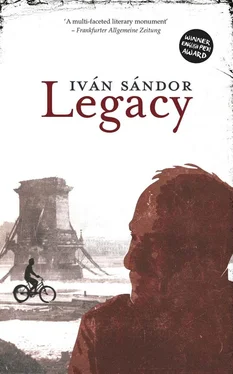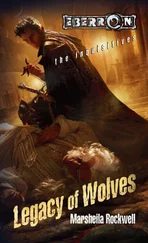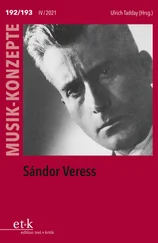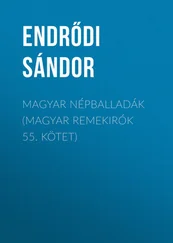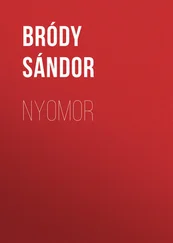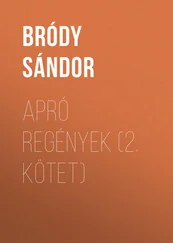There is a pine tree standing in the corner with a few burned-down candles on it. Could it be that the nurses were celebrating Christ mas that evening?
At midnight I am awakened to find all around us is shaking. I guess it is midnight from the fact that another nurse is undressing in the corner and slipping into the place of the one I saw earlier. It’s started, she says. The thunder of the cannon fire can be heard from Pestújhely, the XVth District, out to the north-east. They have started. Are you Jewish? she asks. Why? Does it matter to you? I’m not, she says, but nothing matters.
I would like to have a chat with her, and I get a sense that she, too, would quite like that. But then I also want to get some sleep.
Continuous gunfire.
On 23 December Soviet troops from Transdanubia, which are now surrounding Budapest, occupy Érd, the village lying just beyond the south-eastern outskirts of Buda. Hitler, having declared Budapest a fortress city which has to be defended to the last man, rejects a request from General Karl Pfeffer-Wildenbruch, the commander of IX Waffen-SS Alpine Corps, to regroup the 8th SS Cavalry Division Florian Geyer from the bridgehead in Pest, but Colonel-General Guderian, Chief of Staff of the General Army, consents to this on his own responsibility. On 24 December at 4.15 Guderian and General Hermann Balck, then in command of the German 6th Army, request permission to surrender Budapest in order to withdraw the troops to western Hungary, but Hitler rejects that proposal, too.
In the Opera House in Pest a performance of Aïda was given. Before the start of Act 2 an actor in military uniform appeared on stage in front of the curtain to pass on to the audience the frontline’s greeting. I can reassure you all with a clear conscience that Budapest remains in Hungarian hands, he says.
A memorandum prepared at the Swedish Embassy reports that some twenty-five Arrow Cross soldiers broke into the Red Cross home at number 7–11 Mihály Munkácsy Street, where, the children having earlier been removed to the ghetto, a further group had been placed under protection. Two sick elderly women who were in the building were shot out of hand, and two three-year-olds in room 8 on the second floor were also shot dead.
Men of the University 1st Assault Battalion are placed on alert on the orders of Emil Kovarcz, Arrow Cross commander and a minister without portfolio in the Hungarian Government of National Unity. István Zakó, the Arrow Cross Party youth leader, proposes that university students may leave the capital with the fleeing Arrow Cross militiamen, but the decision is taken to stay and fight. Our action will help the Hungarian cause, declares Gyula Fischer, the battalion commander.
General Iván Hindy, commander of the remnant of the Hungarian forces defending the city, delivers a radio appeal to the inhabitants of Budapest. The situation is serious, but the capital will be relieved speedily. He submits a report to the Minister of Defence and the Chief of the General Staff:
The great mass of people may not await the Russians as liberators, but they are in such a mental state that they await Soviet occupation with resignation. People are weeping and in despair that the city will be destroyed. They think with horror of the possibility that all the bridges will be blown up.
By near daybreak I have got used to the continuous thunder.
The nurse is also awake. She smiles, and I try to smile back. She is very young. Her clothes rustle as she dresses. I turn my back, although it would be good to take a peek. But now she is already by my bed and gives me a peck on the brow.

The black Packard whisks through villages. Gertrud Lutz is sitting beside the chauffeur with Gizi in the back seat. Gertrud has been this way before; the legation rented a holiday house at Bicske, around thirty kilometres due west of Buda. Gizi has also been here. The time they had gone to Hegyeshalom they had driven along the highway passing through Gönyű by the Danube, just before Győr. This time, too, she has a white headscarf and an ICRC armband.
They do not talk, although Gertrud occasionally says a few words to the chauffeur, and he himself occasionally enquires if they should drive further. The sounds of tank guns and machine guns can be picked up from the thunder; they are travelling near the front line. Gertrud tells him to drive on; she wants to buy potatoes, flour and fat. She had recently come to an agreement with a farmer living next to the rented house that he would slaughter a pig. Gertrud has the feeling that for all that they are constantly running across soldiers marching or fleeing westwards and having to stop because German panzers are cutting across the highway. But being in the ravaged countryside is better than staying in the blacked-out city.
In place of the spectacle of marching soldiers Gizi sees the column marching towards Hegyeshalom, the dead bodies in the ditches and her own self bending over them in search of Bőzsi. And she also sees Károly’s face as he takes her hand and sits her in the car. He had laughed, Mother says. Gizi had told her that Gertrud laughed. Perhaps it was because of that, said Gizi, he took me on the trip to ease my depression. Gizi had been in a terrible state when he visited the hospital, says Mother, she was so worn out that your father and I agreed that the best thing for her would be for her to stay with us. Dr Temesváry would have permitted it. She just sat on my bed and cried. I don’t remember that, I say, and Mother glances at me but does not respond, although it would be nice to know what is running through her mind, but I don’t ask. Memories stay fresher if they are tucked away, and undoubtedly we share that awareness. Maybe she’s thinking what a good job it is that I don’t remember everything that she remembers. But Gertrud laughed, Gizi tells Mother while sitting on the hospital bed. She wanted to shake me up a bit, the dear, brave lady with those ‘no big deals’ she picked up from me. In the twilight, coming up to Bicske, we almost collided with a Russian tank, then we got caught up in an attack by a low-altitude plane, so the chauffeur slammed on the brakes and yelled at us to take cover in the ditch — we dropped flat on our stomachs among the soldiers. And when the attack was over Gertrud said, There you have it, darling, no big deal; let’s carry on, I want to take that slaughtered pig back home. But then it didn’t work out because the farmer with whom she had made the agreement had done a runner, although fortunately his neighbour, who you could tell just by looking at him was completely broke, gave her some potatoes, fat and even honey. And Gertrud said in the car on the way back, There you are, poor people are different, both here and back in Switzerland, and they can allow themselves to have a heart, whereas anyone who owns anything just grins like a hamster. And Gizi said that ‘grins-like-a-hamster’ to herself several times over, says Mother. She spoke very good German, but she didn’t know expressions like that, so Gertrud had to explain it, and when Gizi got the drift she finally burst out laughing, and both of them laughed on the way back, not at what could be seen through the car windows but at the way Gertrud tried to imitate a grinning hamster by pursing her lips, and that was something Gizi herself acted out at the hospital, says Mother. I don’t recall that, I say, nor that she went into a weeping fit. She sat on my bed, says Mother. I don’t recall that either, I say. For heaven’s sake, here’s me crying my eyes out to you, says Gizi, me crying my eyes out to you, and she made a fresh trip between the beds. She had a snapshot of Bőzsi, which she lit up with her torch and asked everyone all over again whether they had seen her. One of the women, barely able to speak, snatched at the photograph. My dearest, she whispered, and Gizi had trouble plucking it out of her grip.
Читать дальше
